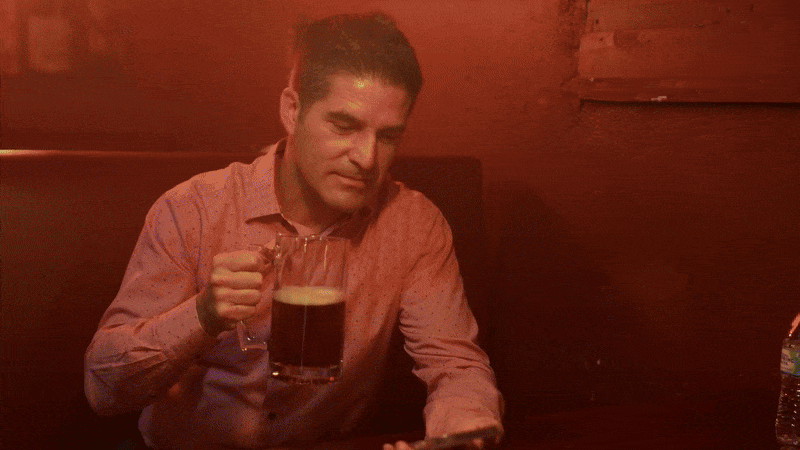Outsourcing Spirituality: Why Some American Leaders Seek Eastern Wisdom
Successful industry leaders turn to the East—not for business strategies, but for spiritual guidance. From Silicon Valley titans to everyday Americans, the appeal of practices like meditation, yoga, and Tai Chi has permeated American culture, often without acknowledging their deeper cultural origins.

While Western spirituality, predominantly Christianity, emphasizes community and structured worship, Eastern practices offer a path to self-awareness, personal growth, and mental clarity—qualities highly sought after in high-stakes environments. But why do so many turn to these ancient philosophies? And what does it reveal about American culture?
1. The Appeal of Eastern Spirituality Among High Achievers
Steve Jobs, the visionary behind Apple, famously embarked on a spiritual pilgrimage to India, seeking enlightenment and simplicity that would later shape his approach to life and business. His practice of Zen Buddhism informed not only his personal life but also Apple’s minimalist design philosophy. Jobs even advised Mark Zuckerberg to make a similar journey when the young Facebook founder sought his mentorship. This intersection of spirituality and leadership reflects a broader trend among successful people who embrace Eastern practices as a means of navigating the complexities of their roles.
Eastern philosophies like Buddhism and Taoism emphasize mindfulness, self-discipline, and a holistic approach to life—qualities that help high achievers manage stress, enhance focus, and build resilience. Ray Dalio, billionaire investor and founder of Bridgewater Associates, credits his meditation practice as one of the most important factors behind his success, helping him remain clear-headed and composed amid the chaos of financial markets.
2. Stress Management, Mindfulness, and the High-Pressure World
In high-stakes industries, the ability to remain calm under pressure is invaluable. Eastern practices like meditation, Tai Chi, and mindfulness offer tools to cultivate inner peace and mental agility. While Western approaches often emphasize external accomplishments, Eastern philosophies focus inward, encouraging individuals to confront their thoughts, emotions, and the nature of self. This introspective approach is why many business leaders, athletes, and creatives integrate these practices into their daily routines.
Tai Chi, originally developed as a martial art, has found a new life in the West as a form of moving meditation that enhances mental and physical dexterity. Professional fighters, like mixed martial artists, use these techniques not only for physical conditioning but also for mental preparation, channeling focus and maintaining composure during bouts.
3. Cultural Tensions: Embracing Practices, Rejecting Origins
While the adoption of Eastern spirituality has grown, it often comes with a selective embrace that strips practices of their cultural roots. Americans frequently adopt the methods—yoga poses, meditation apps, mindfulness retreats—without fully acknowledging their spiritual significance. Consider the phenomenon of “hot yoga,” popular among fitness enthusiasts who might avoid uttering “Namaste” or engaging with the broader cultural context of yoga’s origins.
This selective integration speaks to a broader discomfort: the reluctance to fully adopt what feels foreign or challenges deeply held national identities. For example, when President Obama bowed to Japanese Emperor Akihito, it sparked outrage among conservative Americans who viewed the gesture as un-American, despite it being a sign of respect in Japanese culture. Similarly, many Americans embrace the physical benefits of yoga while resisting the spiritual elements that traditionally accompany the practice.
4. The Rise of Eastern Practices in American Pop Culture
The rise of Eastern spirituality in American culture can be traced back to the 1960s counterculture movement, where figures like The Beatles introduced Transcendental Meditation to the mainstream. John Lennon, though not American, epitomized this crossover, publicly embracing Eastern philosophies and inspiring a generation to look beyond conventional Western spirituality. Today, these influences are seen in everything from corporate wellness programs to professional sports.
Yoga studios are as ubiquitous as Starbucks, and mindfulness apps have become a billion-dollar industry, demonstrating a hunger for spiritual nourishment in a society often criticized for its materialism. Despite this, the deeper philosophies behind these practices—selflessness, detachment from material goods, and the pursuit of enlightenment—are often overshadowed by the commodification of these spiritual tools.
5. The Shadow Side: Appropriation, Commercialization, and Identity
The mainstreaming of Eastern spirituality in America has not come without controversy. Cultural appropriation is a persistent issue, with critics arguing that these practices are often stripped of their spiritual essence and repackaged for Western consumption. Yoga, for instance, is frequently marketed purely as a physical workout, ignoring its profound philosophical roots. This transformation of sacred traditions into marketable products reflects broader tensions between embracing foreign ideas and maintaining a distinctly American identity.
These dynamics also intersect with issues of race and cultural dominance. The Americanization of Eastern spirituality often involves a rebranding that detaches these practices from their original cultural contexts, making them palatable to a predominantly white, middle-class audience while sidelining the voices of the cultures from which these traditions originate.
6. A Complex Relationship: Redefining Success Through Eastern Wisdom
The attraction of Eastern spirituality among America’s most successful reflects a deeper search for meaning in a high-pressure world. For many, these practices offer a way to balance the demands of success with a need for personal fulfillment and peace. But as these traditions become more intertwined with Western culture, the question remains: Are Americans truly embracing these philosophies, or merely consuming them?
Success, particularly in American culture, is often defined by external achievements—wealth, status, and influence. Eastern spirituality, on the other hand, challenges these notions, offering an inward path that prioritizes self-awareness, compassion, and balance. As more individuals, from tech moguls to everyday Americans, turn to these practices, they confront the contradictions of integrating Eastern wisdom into a culture that often prizes the very things these philosophies urge us to transcend.
Conclusion: A Journey of Adaptation and Reflection
Eastern spirituality’s integration into American life represents a fascinating blend of adaptation, commercialization, and genuine spiritual seeking. As the lines between East and West continue to blur, the challenge will be to engage with these traditions thoughtfully and respectfully, recognizing their origins while exploring their potential to enrich our understanding of success, identity, and the human experience.
This journey reflects not just a borrowing of foreign practices but a deeper cultural exchange that invites Americans to reconsider what it means to live a successful, balanced, and meaningful life.
What's Your Reaction?





























_at_Hillsboro_Road_(Virginia_State_Route_690)_in_Hillsboro%2C_Loudoun_County%2C_Virginia.jpg/240px-thumbnail.jpg)












![Round One of 'Did You Know He Was...Whoite [sic]'](https://news.awc.ac/uploads/images/202409/image_430x256_66eb6319e5d76.jpg)
















